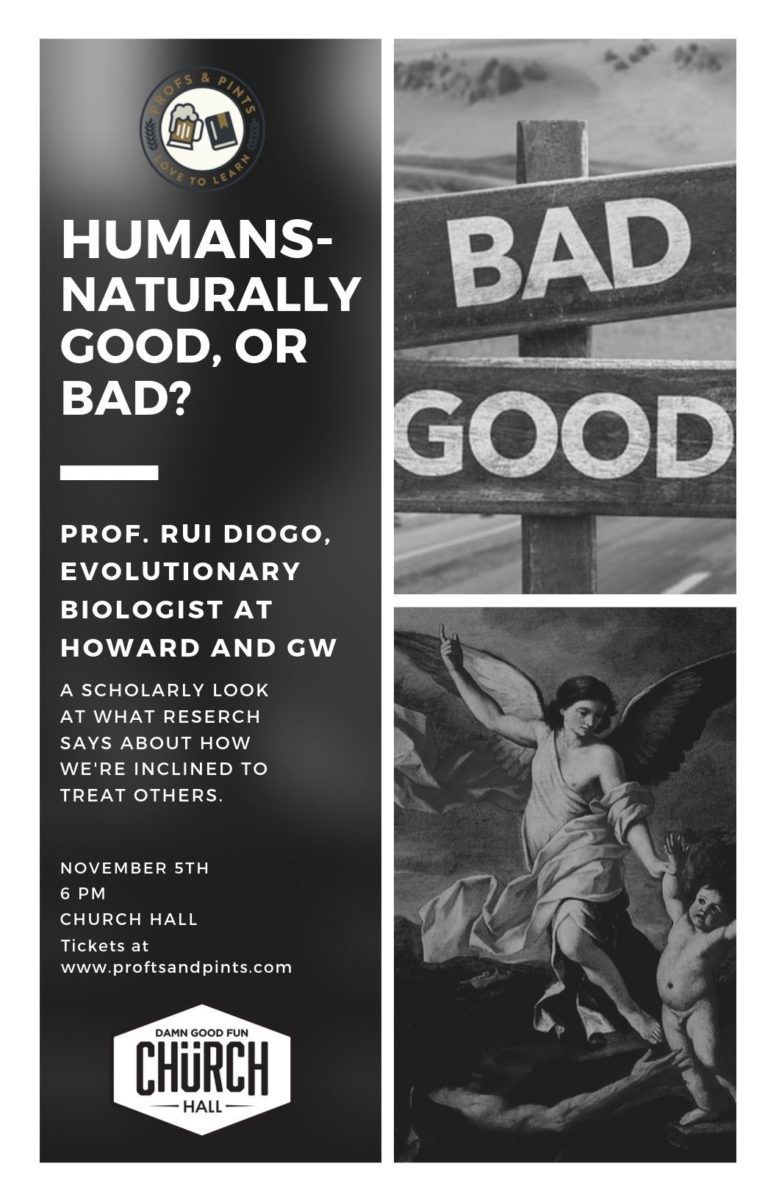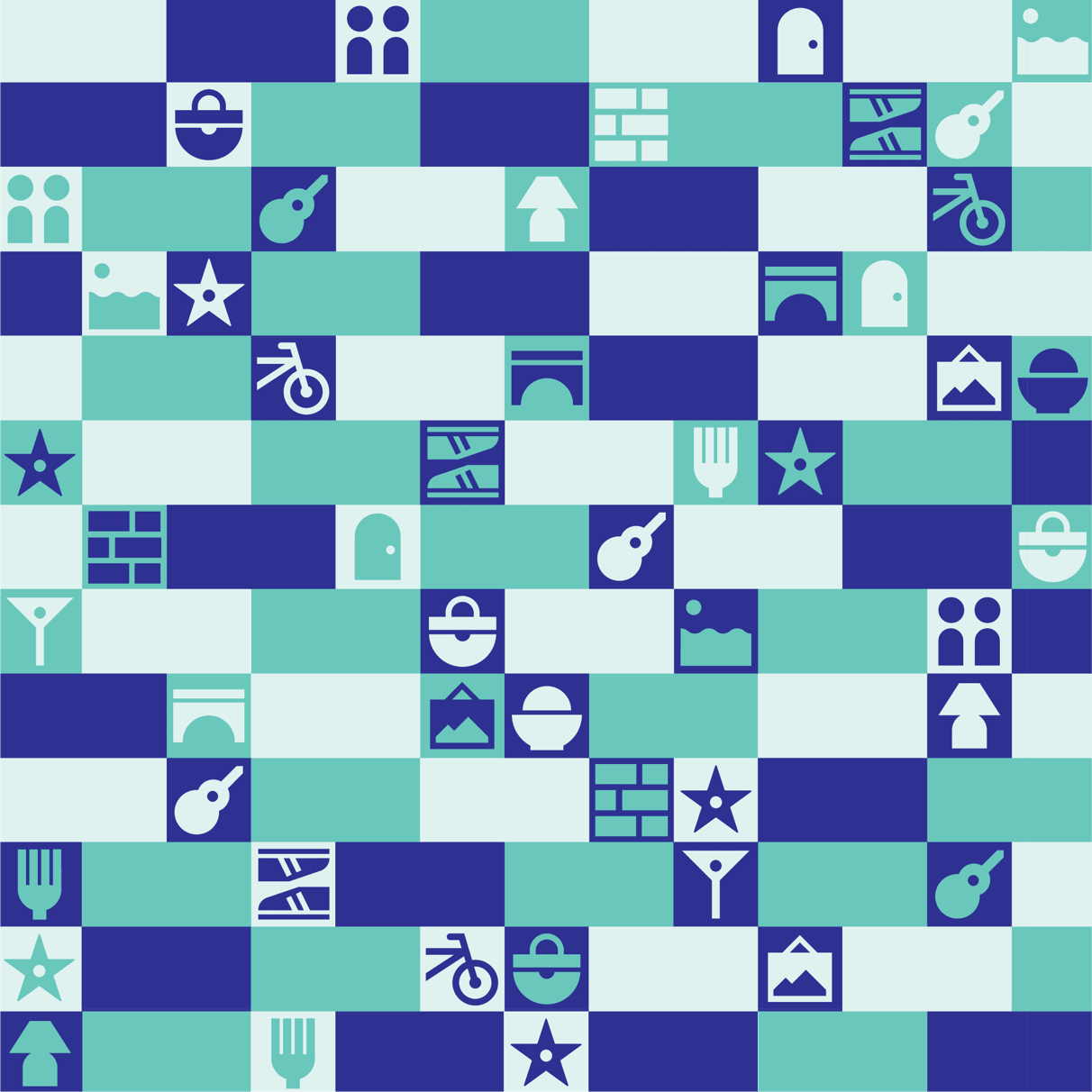Human Nature: Naturally Good, or Bad
“Humans—Naturally Good, or Bad?” with Rui Diogo, associate professor of anatomy at Howard University’s College of Medicine and resource faculty member at George Washington University’s Center for the Advanced Study of Hominid Paleobiology.
Humans long have been obsessed by the question of whether we are naturally good or evil. More recently, this discussion mainly has been put in a rather simplistic framework: the social evolutionary view of Thomas Hobbes, arguing that life in the “state of nature” was “nasty, brutish, and short,” versus the view of Jean-Jacques Rousseau, who traces humanity’s trajectory from a baseline of the “noble savage.” Despite the publication of thousands of works on the subject in the last few centuries, the debate remains far from settled within archaeology, ethnography, social psychology and other fields.
Come hear Rui Diogo—an evolutionary biologist who has fascinated Profs and Pints audiences with his past talks on evolution’s connections with medicine, human sexuality, racism, and other subjects—for a fascinating look at what empirical research says about humanity’s propensity for good or evil. Drawing from the sciences, anthropology, history, sociology, and other fields, he’ll look at what empirical data says about our basic nature, and which societies’ members are more likely to do each other good or harm.
Are modern city dwellers the ones we need to look out for, or are hunter-gatherers who live without domesticated animals and plants more dangerous? And which group truly has a better ‘quality’ of life? Professor Diogo will have answers to that question that might surprise you, using figures such as those charting homicide rates, life expectancy, suicide rates, types of foods consumed, levels of egalitarianism, frequency of sexual relationships, and stress levels around the world. You might not leave the talk as a better person, but you’ll have a better idea of why you behave as you do.


